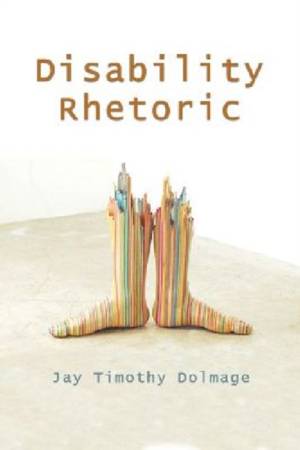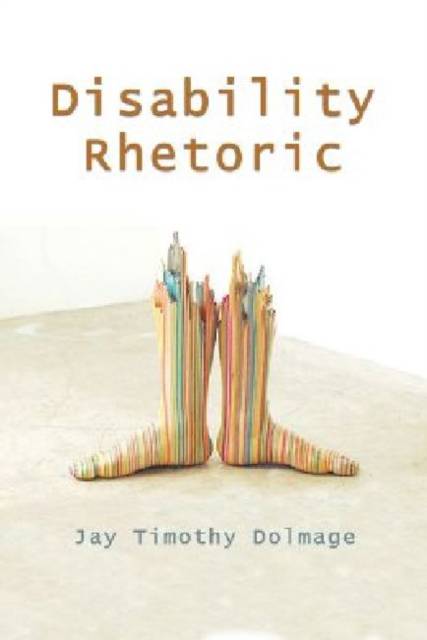
- Afhalen na 1 uur in een winkel met voorraad
- Gratis thuislevering in België vanaf € 30
- Ruim aanbod met 7 miljoen producten
- Afhalen na 1 uur in een winkel met voorraad
- Gratis thuislevering in België vanaf € 30
- Ruim aanbod met 7 miljoen producten
Zoeken
€ 53,45
+ 106 punten
Prijzen
Omschrijving
Disability Rhetoric is the first book to view rhetorical theory and history through the lens of disability studies. Traditionally, the body has been seen as, at best, a rhetorical distraction; at worst, those whose bodies do not conform to a narrow range of norms are disqualified from speaking. Yet, Dolmage argues that communication has always been obsessed with the meaning of the body and that bodily difference is always highly rhetorical. Following from this rewriting of rhetorical history, he outlines the development of a new theory, affirming the ideas that all communication is embodied, that the body plays a central role in all expression, and that greater attention to a range of bodies is therefore essential to a better understanding of rhetorical histories, theories, and possibilities.
Specificaties
Betrokkenen
- Auteur(s):
- Uitgeverij:
Inhoud
- Aantal bladzijden:
- 349
- Taal:
- Engels
- Reeks:
Eigenschappen
- Productcode (EAN):
- 9780815633242
- Verschijningsdatum:
- 22/01/2014
- Uitvoering:
- Hardcover
- Formaat:
- Ongenaaid / garenloos gebonden
- Afmetingen:
- 160 mm x 234 mm
- Gewicht:
- 657 g

Alleen bij Standaard Boekhandel
+ 106 punten op je klantenkaart van Standaard Boekhandel
Beoordelingen
We publiceren alleen reviews die voldoen aan de voorwaarden voor reviews. Bekijk onze voorwaarden voor reviews.













